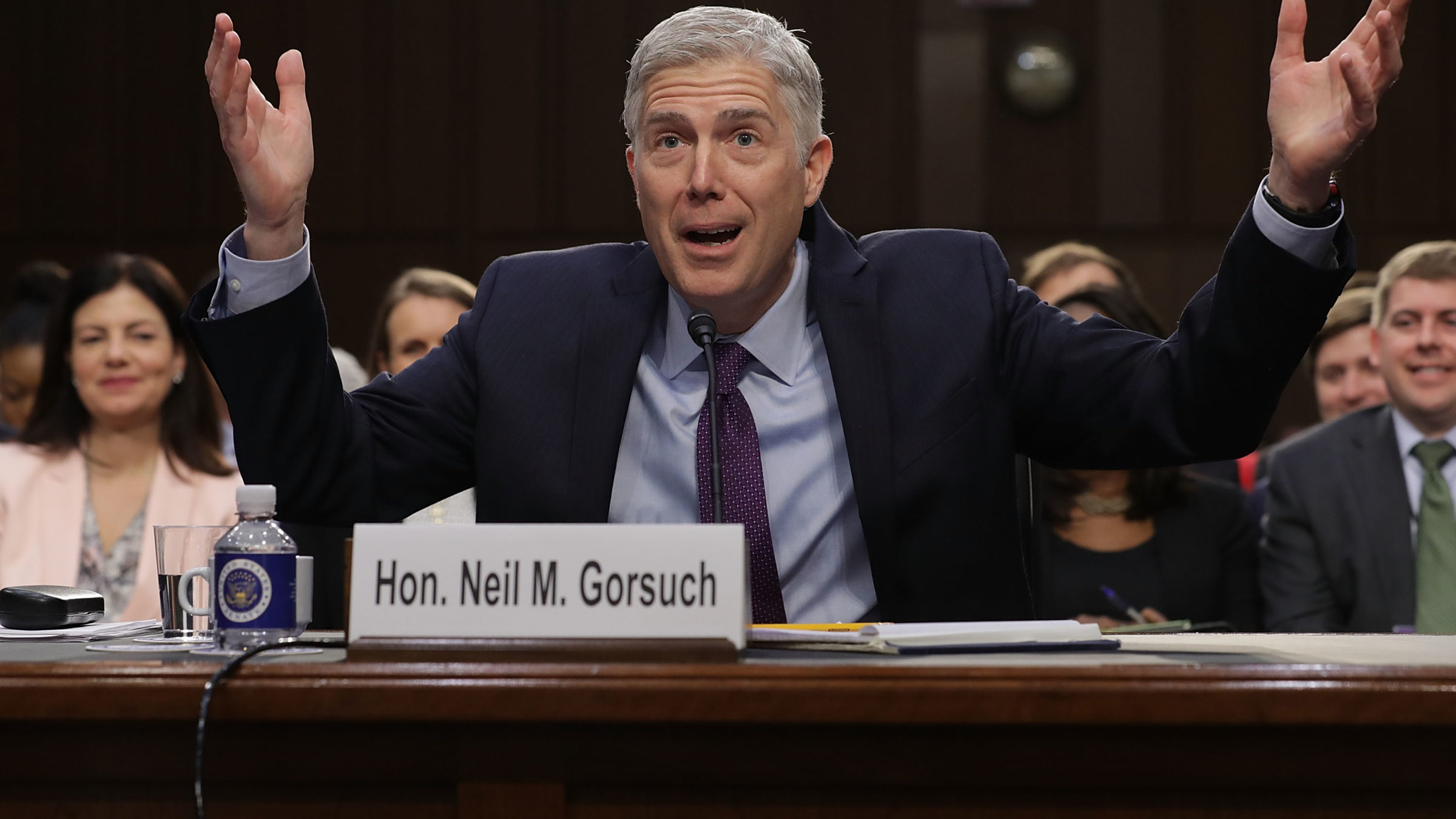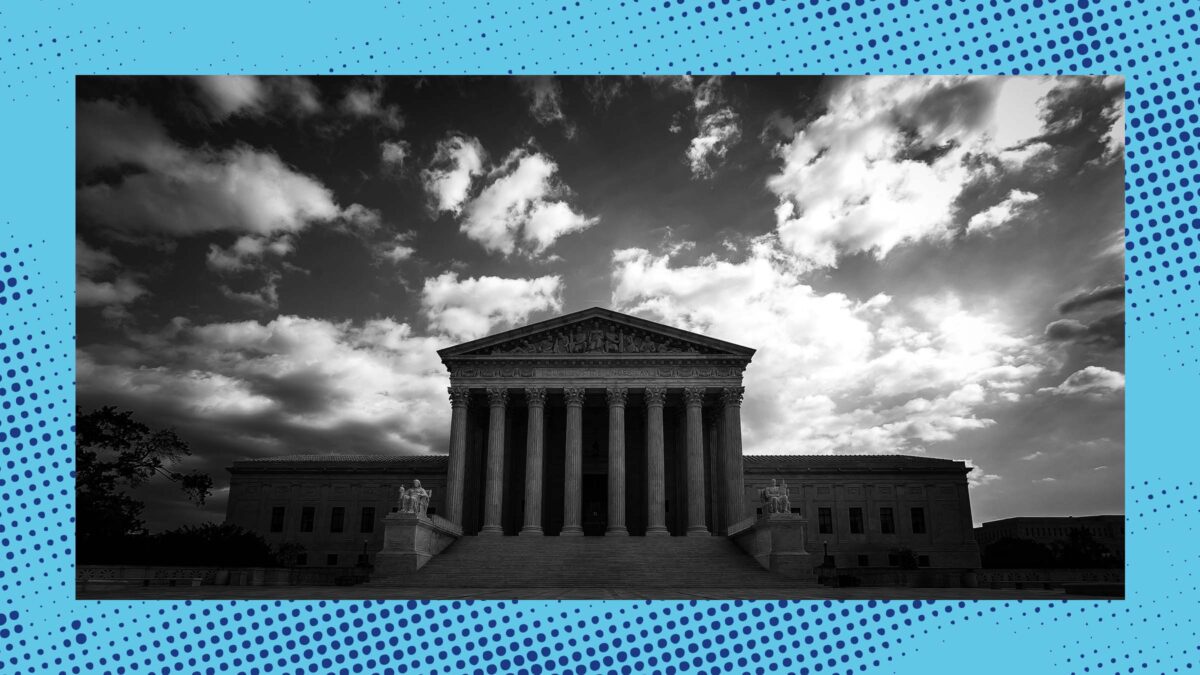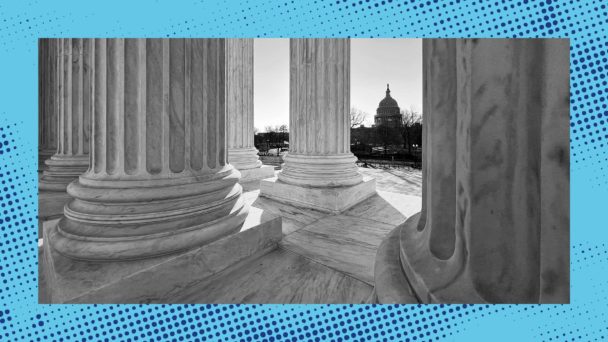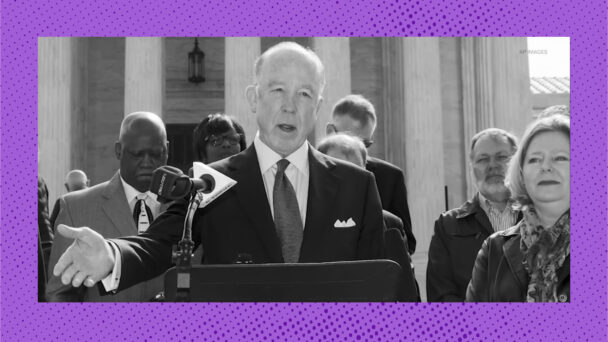On the last day of Pride Month, as an extra-special treat, the conservative majority of the Supreme Court ruled that businesses may discriminate against same-sex couples if they do not “believe” in same-sex marriage. And even though the decision, 303 Creative v. Elenis, was largely a foregone conclusion given the composition of the Court, it is still jarring to see that majority hold that public accommodations do not, actually, have to be open to all members of the public if the business owner feels that serving same-sex couples is compelled speech. Carving out this First Amendment exception here is a first for the Court and ends a decades-long expansion of public accommodation rights—one of the hardest won fights of the civil rights movement.
Procedurally, this case was already wildly illegitimate, as the plaintiff, website designer Lorie Smith, had never run afoul of Colorado’s law prohibiting discrimination on the basis of sex or other protected status because she had never made any wedding websites for anyone. The case was built out of whole cloth by Alliance Defending Freedom, a religious law firm that has long brought cases challenging LGTBQ+ equality. Further, the ostensible trigger for her concern about creating websites for same-sex couples—that she had received an inquiry from “Stewart” and “Mike” about doing their marriage website—turned out to be entirely false, as Stewart is straight, married to a woman, and never contacted 303 Creative about a wedding website.
Regardless, Smith felt threatened by the Colorado law and filed a preemptive challenge to not be subject to it. Normally, plaintiffs must prove they have been harmed to proceed with a lawsuit. If that wasn’t the case, people could challenge any law at any time, even if that law didn’t affect them. Writing for the majority, Neil Gorsuch doesn’t trouble himself with considering that key legal principle, instead saying that Smith sued to “clarify her rights,” which is not how lawsuits work. But grappling with that wouldn’t have let the conservative majority hollow out a core civil rights law.
The hollowing out is done in a way that is now depressingly familiar, which is to allow the First Amendment to be a weapon wielded by Christian conservatives to refuse to participate in a pluralistic society. Thanks to Burwell v. Hobby Lobby, private companies with Christian owners can refuse to follow the Affordable Care Act’s birth control mandate because doing so violates their sincerely held beliefs. Thanks to Fulton v. City of Philadelphia, Christian foster care agencies can refuse to place children with same-sex couples because doing so violates their First Amendment right to free speech. And now, following 303 Creative’s reasoning, any business in America can refuse to do business with same-sex couples if the owner has a religious objection to same-sex marriage. The Court tries to cabin this holding in terms of forcing “an individual to speak contrary to her beliefs on a significant issue of personal conviction,” but that distinction matters little in the real world.
Here, the majority’s invocation of the nation’s history of expanding access to public accommodations such as hotels, restaurants, gas stations, and yes, even web designers, feels utterly untethered from reality. Gorsuch says the majority “does not question the vital role public accommodations laws play in realizing the civil rights of all Americans,” yet goes on to do just that, finding that while those laws play a vital role, they somehow do not apply to a conscientious objector who disagrees with how same-sex couples live their lives. While Gorsuch’s opinion approvingly cites Heart of Atlanta Motel v. United States, the seminal civil rights case that held hotels could not refuse service to Black people, it goes on to completely ignore the underlying principle, which is that if a business holds itself out as available to the public, it doesn’t get to pick and choose which members of the public it will serve.
The tortured logic of the majority opinion, hyperfocused on “expressive services,” is similar to 2018’s Masterpiece Cakeshop v. Colorado, where the Court, back when Justice Anthony Kennedy was still there, twisted itself in knots to say that discrimination based on religious opposition to same-sex marriage is somehow not the same as discriminating against LGBTQ people. It’s an absurd distinction on its face, as it functionally says that being LGBTQ is fine as long as one does not try to access the rights and privileges other couples have. Justice Sonia Sotomayor’s dissent calls out the majority for this thinking, noting that Smith said she would make websites for anyone, including same-sex couples, as long as those same-sex couples aren’t buying a wedding website. Apparently, Sotomayor dryly observes, “a gay or lesbian couple might buy a wedding website for their straight friends,” and Smith would find that permissible.

Photo by Chip Somodevilla/Getty Images
Worse, in a brief aside, the majority tees up the right of people like Smith to refuse service to LGBTQ people, period. Smith stated she would create websites for LGBTQ clients or organizations “as long as the custom graphics and websites do not violate her beliefs.” Note that isn’t limited to simply whether Smith finds same-sex marriage repugnant. Instead, it allows Smith and every other bigot to declare that the mere act of engaging in any commerce with an LGBTQ individual violates their beliefs.
Though Gorsuch’s opinion creates this exception, he is profoundly unhappy that Sotomayor’s dissent teases out exactly what this means. He complains about the dissent being “adrift on a sea of hypotheticals” because Sotomayor dares to discuss the real-world implications of the opinion. Sotomayor’s focus on the real-world stigma that arises when you tell a group of people they are not protected by the laws that protect others stands in stark contrast to the ethereal First Amendment musings of the majority opinion. Sotomayor acknowledges that the majority’s decision creates real-world harm and limitations for LGBTQ people, particularly, but not exclusively, same-sex couples. She points out the majority’s solution is to allow 303 Creative (and other religious businesses) to hold their services out to the public but offer LGBTQ people only “a limited menu.” Sotomayor says that doing so is no different than those restaurants that claimed they didn’t deny service to Black people because Black people could get take-out service from a separate counter. Allowing 303 Creative to provide only a limited subset of its services to same-sex couples is nothing but separate but equal treatment.
Where Gorsuch’s opinion oozes a blithe certainty that this doesn’t really harm anyone as same-sex couples can always go elsewhere for their wedding needs, Sotomayor’s dissent, which she read from the bench on Friday, forces the reader to understand that this decision radically alters public accommodation laws for the first time and that such a decision is a profound betrayal of the Court’s role in expanding, not contracting, civil rights. But the Court’s conservative supermajority is wholly committed to that contraction, and none of this will change until the Court’s power itself is contracted.




